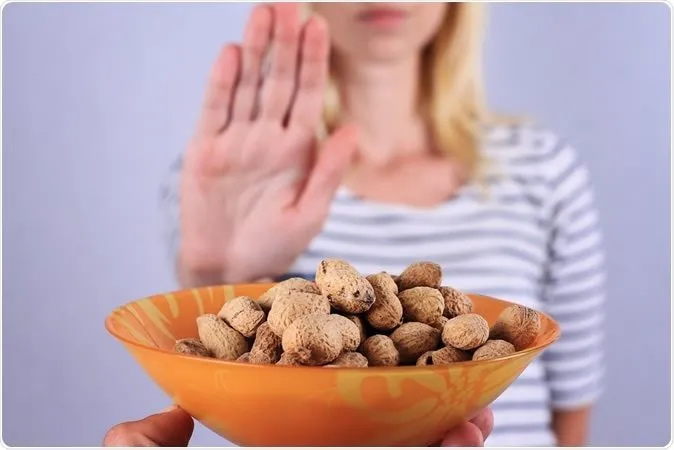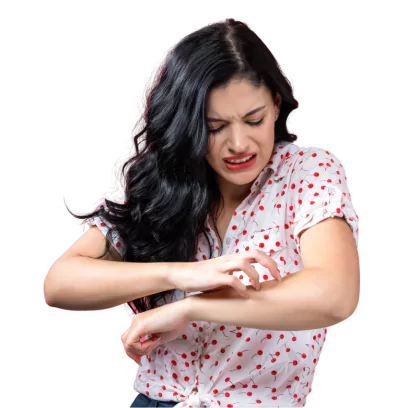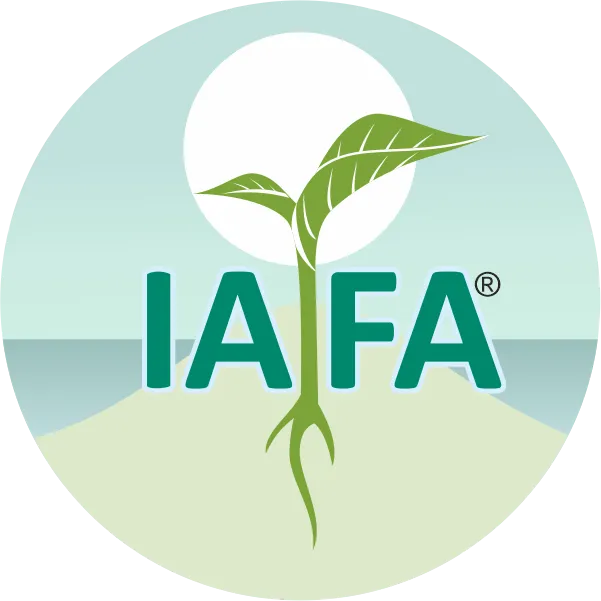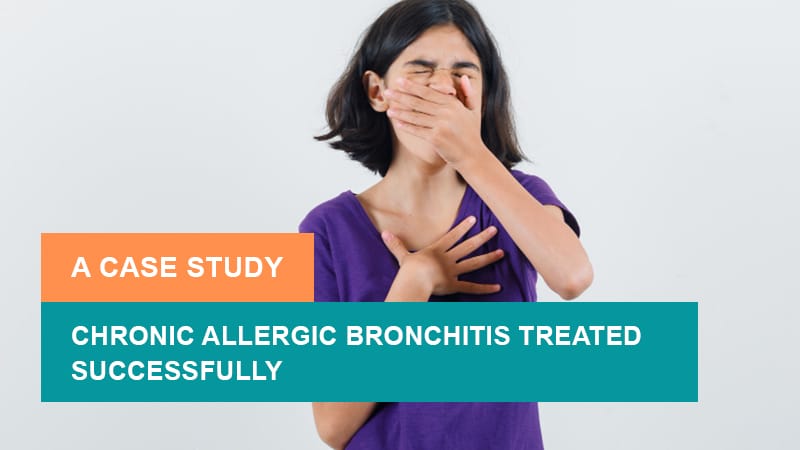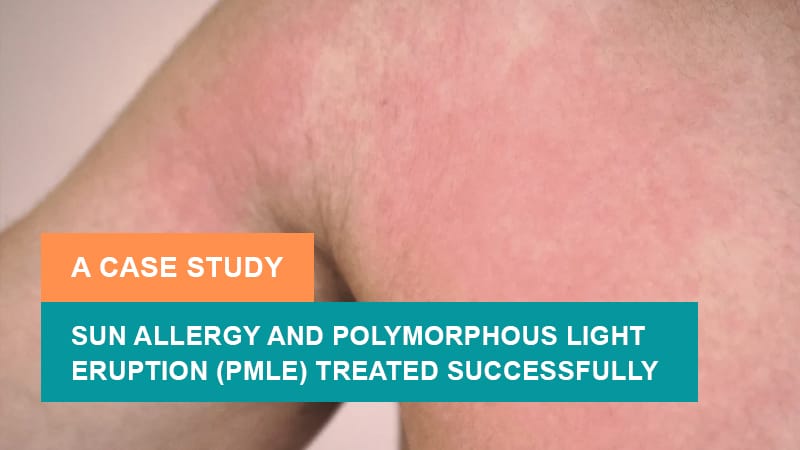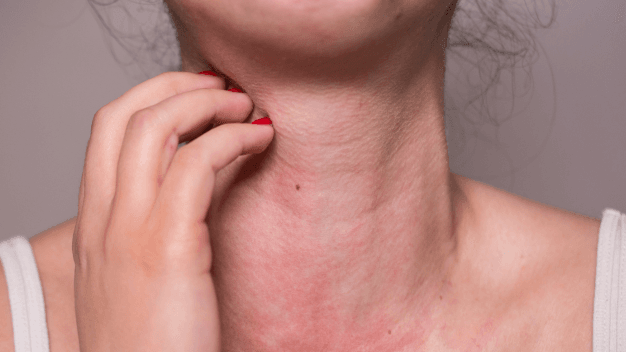On This Page
Peanut Allergy – Causes, Symptoms & Ayurvedic Treatment
उपशेतेयदौचित्यादोकसात्म्यंतदुच्यते ||४९|| (च.सू.६/४९)
Peanut allergy is a type of food allergy to peanuts. It is different from tree nut allergies, with peanuts being legumes and not true nuts. It is due to a type I hypersensitivity reaction of the immune system in susceptible individuals. The allergy is recognized “as one of the most severe food allergies due to its prevalence, persistency, and potential severity of the allergic reaction. When a person with a peanut allergy is exposed to peanuts, proteins in the peanut bind to IgE antibodies of the person’s immune system. This triggers the person’s immune defenses, leading to reaction symptoms that can be mild or very severe.
Ayurveda Science explains that an object which is not familiar to body cells and tissues is regarded as Asatmya or unwholesome and Satmya means suitability to some things, which are favorable for one’s own self. Asatmya may be also called Anupashaya or Ahita or Apathya. In other words, it can be said that the factor or particles which disrupt normal physiological functions or damage the dhatus is known as Asatmya. This concept may be correlated to all types of food allergies.
Causes of Peanut Allergy
Peanuts can cause a severe, potentially life-threatening allergic reaction (anaphylaxis). Allergic reactions can be unpredictable, and even very small amounts of peanut can cause one.
Symptoms of Peanut Allergy
Signs and symptoms usually occur within minutes of contact with peanuts, but can also occur up to one hour later. Most allergic reactions are mild but they can also be moderate or severe. Anaphylaxis is the most severe form of allergic reaction which can be life-threatening.
Mild to moderate symptoms include:–
- Itchy mouth, tongue, and throat
- Swelling of lips, around the eyes or face
- Red raised itchy rash (often called nettle rash, hives, or urticaria)
- Vomiting, nausea, abdominal pain, and diarrhea
- Runny nose and sneezing
Severe symptoms of anaphylaxis include:–
- Swelling of the tongue and/or throat
- Difficulty in swallowing or speaking
- Change in voice (hoarse voice)
- Wheeze (whistling noise) or persistent cough
- Difficult or noisy breathing
- Dizziness, collapse, loss of consciousness (due to a drop in blood pressure)
- Pale, floppy, sudden sleepiness in babies
Ayurvedic Reference of Peanut Allergy
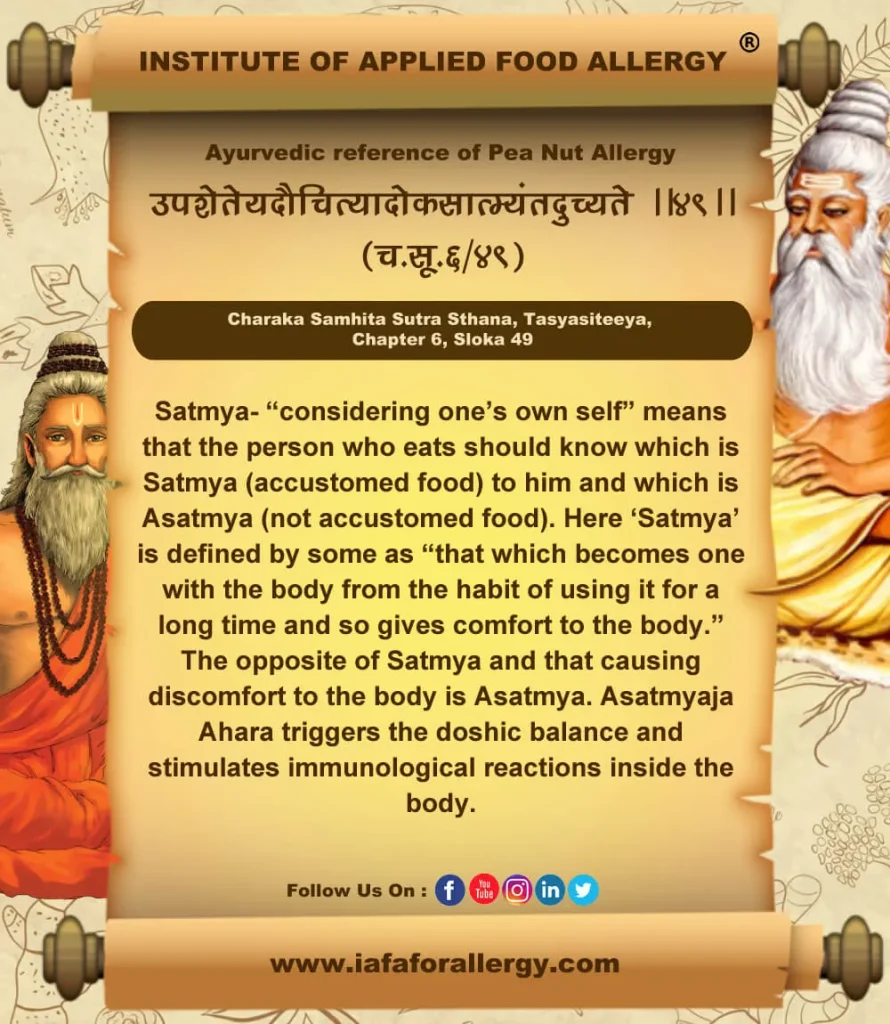

“Dr. Gupta’s Institute of Applied Food Allergy® offers comprehensive, the dedicated helpline is for people who need treatment for Peanut allergy.”
A healthy body holds a Healthy Soul & mind !!!. Reach Dr. Gupta’s IAFA for all your worries about your health.
– Dr. Sahil Gupta (B.A.M.S., M.H.A.)
Ayurvedic Allergy Specialist
CEO & Founder of IAFA®
At last, Easier Peanut Allergy Management

Trusted by
More than 90,000 Patients

Convenient
at-Home Treatments

9.2 / 10
Customer Satisfaction Score
Ayurvedic Treatment for Peanut Allergy
Any dietary substance will become Asatmya to a person if there is improper digestive fire or Agni. Digestive fire of the body (Agni) becomes weak due to ama visha (metabolic toxin) formation in the body and causes an imbalance of doshas (Vata, Pitta, Kapha are life forces) in the body. Treatment involves Shamana chikitsa (internal medicines), Shodhana chikitsa (Panchakarma therapy), lifestyle modifications, and a very strict diet regimen.
Internal Medicines for Peanut Allergy
- Guluchyadi Kashaya
- Drakshadi Kashaya
- Hingvadi Vati
- Kutaja ghana Vati
- Chitrakadi Vati
- Shivakshara Churna
- Trikatu Churna
- Dadimadi Ghritham
- Guduchi Satva
- Praval Panchamrit
Purificatory Therapies for Peanut Allergy
- Vamana (emesis therapy),
- Virechna (purgation therapy),
- Asthapanavasti (medicated enema)
Single Herbs Used in Peanut Allergy
- Pippalimoola (Piper longum)
- Chavya (Piper chaba)
- Sunthi (Zingiber officinale)
- Amlavetasa (Garcinia pedunculata)
- Chitraka (Plumbago zeylanica)
- Pippali (Piper longum)
- Maricha (Piper nigrum)
- Haridra (Curcuma longa)
- Kutaja (Holarrhena Antidysenterica)
- Bilwa (Aegle marmelos)
- Musta (Cyperus rotundus)
Diet Management in Peanut Allergy
Pathya (Do’s)
Foods that can be included in a patient having Peanut allergy are:-
- Bread products made without peanuts.
- Candy without peanuts or peanut butter.
- Desserts made without peanut protein.
- All fats and oils, except extruded, cold-pressed, or expelled peanut oil.
- All milk, yogurt, cheese, and eggs.
- Avoid foods that cause a reaction. Sometimes just touching foods can cause a reaction. Wash hands often.
- Read the ingredients lists on food labels to make sure peanuts are not present. Read the list even if you have had the product before. Ingredients may change
- When you travel bring along some food.
- When you eat out, always ask restaurant staff about ingredients in food and how it was prepared. Cooking oils can have allergens.
Apathya (Don’ts)
Foods that should be avoided include:-
- Arachis oil (another name for peanut oil)
- Artificial nuts
- Beer nuts
- Cold-pressed, expelled, or extruded peanut oil
- Goobers
- Groundnuts
- Lupin (or lupine)—which is becoming a common flour substitute in gluten-free food. A study showed a strong possibility of cross-reaction between peanuts and this legume, unlike other legumes.
- Mandelonas (peanuts soaked in almond flavoring)
- Mixed nuts
- Monkey nuts
- Nut meat
- Nut pieces
- Peanut butter
- Peanut flour
Yoga Therapy for Peanut Allergy
Yogasanas and pranayama are very effective in Peanut Allergy.
Postures include:-
- Matsyasana
- Paschitmoasana
- Sarvangasana
- Pavanamukthasana
- Sirsasana
- Bhujangasana
Pranayama include,
- Kapalbhati
- Nadishodhana Pranayama
- Bhastrika Pranayama

Frequently Asked Questions
Question: What is Peanut allergy?
Answer: Peanuts are a common cause of food allergy, caused when the immune system reacts to the protein found in peanuts.
Question: What are the causes of Peanut allergy?
Answer: Peanut allergy occurs when the immune system of the body mistakenly identifies peanut proteins as something harmful. Direct or indirect contact with peanuts causes the immune system to release symptom-causing chemicals into your bloodstream.
Question: What is the Ayurveda treatment of Peanut allergy?
Answer: If a patient is healthy then sodhan chikitsa (purificatory) should be done with vamana, virechan, and then shaman (palliative) chikitsa should be done with advised diet and medicines.
Question: How Ayurveda treats peanut allergy?
Answer: Ayurvedic treatment of food allergy including peanut allergy includes shaman chikitsa (internal medicines), shodhan chikitsa (panchakarma therapy), lifestyle modifications and a strict diet regimen.
Question: What is peanut allergy according to Ayurveda?
Answer: Due to the accumulation of ama visha (toxins), agni (digestive fire) of the body becomes weak and causes an imbalance of the doshas in the body.
Question: What is the recommended diet for peanut allergy?
Answer: Foods that can be included in the diet are all milk, yogurt, cheese and eggs, desserts with peanuts or peanut butter. Foods that should be avoided include arachis oil, artificial nuts, beer nuts, groundnuts, goobers, mixed nuts etc.
Question: What are the herbs useful in peanut allergy?
Answer: Some herbs that can improve digestion and provide relief in peanut allergy are – turmeric, cumin, coriander, fennel, ginger, black pepper etc. Make sure the food is warm and cooked with these spices.
References
- Charak Samhita Sutra Sthana, Tasyasiteeya, Chapter 6, Sloka 49.
- Agnivesha. In: Charaka, Dridhabala, Charak Samhita, Sutra Sthana, 26/81. Reprint. Vaidya Jadavaji Trikamaji Acharaya., editor. Varanasi: Krishnadas Academy; 2000. p. 149.
- Ibid. Charak Samhita, Sutra Sthana, 26/84.: 150.
Dr. Gupta’s IAFA aspires to be the destination of choice for people seeking authentic Ayurveda healthcare. IAFA ensures that our health care system better meets the needs of all about your health.
Uncompromising Excellence. Commitment to Care…!!! Dr. Gupta’s IAFA for your future health.
Was this Page Helpful?
So IAFA Root-Cause treatment of your Peanut Allergy is just 3 steps away!

01. Connect With Us
Share your history of illness or Book your appointment

02. Consult With Us
Dr. Gupta a certified Ayurvedic Allergist Consultant

03. Root Cause Treatment
Get an accurate diagnosis, medicines, diet & lifestyle change
Peanut Allergy – Case Studies
Real Case Studies of Successfully Treated Patients from All Around the World by IAFA Ayurveda®

9 Year Old Female Patient Recovered from Chronic Allergic Bronchitis – A Case Study
This case study presents a 9-year-old female patient who has successfully recovered…

12-Year-Old Child Recovered from Sun Allergy and Polymorphous Light Eruption (PMLE) – A Case Study
This is a case study of a 12-year-old child who has successfully…

40-Year-Old Female Patient Recovered from Dyshidrotic Eczema and Onychomycosis – A Case Study
This case study highlights the successful recovery of a 40-year-old female patient…

40-Year-Old Female Patient Recovered from Urticaria and Angioedema – A Case Study
This case study focuses on a 40-year-old female patient who has successfully…
Read More Articles

Mast Cell Diseases
Discover Ayurvedic treatment for Mast Cell Diseases, including types, causes, symptoms, and…

High Immunoglobulin-E (IgE) Levels
Discover Ayurvedic treatment for high Immunoglobulin-E (IgE) levels. Learn about the causes,…

Histamine Intolerance
Discover Ayurvedic treatment for histamine intolerance, its causes, symptoms, and natural treatment.…

